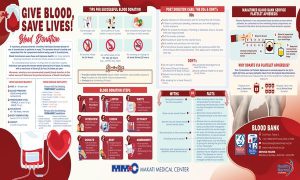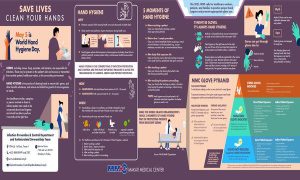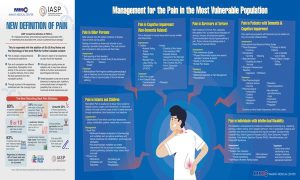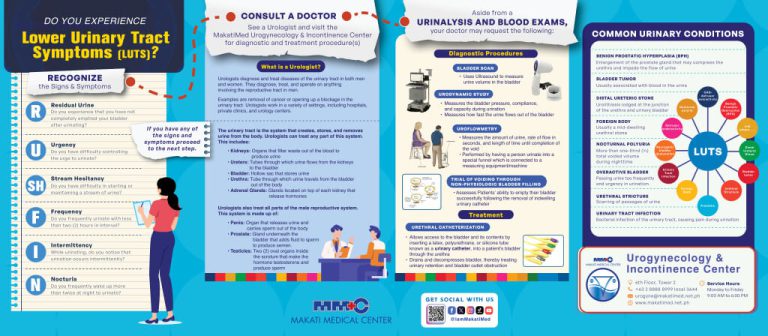
There are 219 countries and territories that have been affected by the infectious disease COVID-19, resulting in mass deaths worldwide. Along with other efforts to combat the pandemic, these countries’ governments have rolled out their respective vaccination programs.
As cases continue to surge, it has been identified that the elderly and those with comorbidities are more likely to suffer from the virus’s deadly effects, making them a priority for vaccination.
What are Comorbidities?
Comorbidities refer to the presence of one or more health conditions a person is having with a primary illness. For instance, a person who has diabetes and hypertension is considered to have comorbidities. Comorbid conditions are often chronic or long-term. When a person experiences them, they may have a compromised immune system.
Comorbidities or multimorbidity is common among adults. Since it targets the lungs, COVID-19 can lead to hospitalization, which may require intensive care and a ventilator to help the patient breathe. A study suggests that it may also potentially cause death, especially in the elderly.
Comorbidities That Have the Most Impact on COVID-19
-
Heart Conditions
Having a heart disease such as heart failure, coronary artery disease, cardiomyopathies, or hypertension can make a patient more likely to get severely ill from COVID-19.
The Harvard Medical School explains that damaged heart muscle or blocked heart arteries weaken the body’s ability to survive the stress of COVID-19. Accordingly, a person with a vulnerable heart is more likely to succumb to the effects of fever, low oxygen levels, unstable blood pressures, and blood clotting disorders—all possible consequences of COVID-19.
-
Chronic Lung Disease
As COVID-19 attacks the lungs, people with lung problems are more likely to develop severe symptoms.
Lung cancer, chronic obstructive pulmonary disease (such as emphysema and chronic bronchitis), cystic fibrosis, pulmonary fibrosis, pulmonary hypertension (high blood pressure in the lungs), and moderate to severe asthma are linked to an increased risk of COVID-19 complications.
Patients with asthma are at a disadvantage because their respiratory tracts are affected, leading to increased asthmatic attacks, pneumonia, and acute respiratory distress.
-
Immunocompromised state (weakened immune system)
-
Cancer
-
Diabetes
-
Stroke
-
Dementia
The Centers for Disease Control and Prevention notes that dementia is associated with COVID-19 complications.
One study shows that the chances of COVID-19 infection for patients with dementia are higher than those without because people with dementia have impaired blood flow in the brain, which is a risk for viral entry. In addition, their impaired memory limits their ability to comply with recommendations for social distancing, mask-wearing, and hand-washing.
-
Liver Disease
-
Blood Disorders
-
Chronic Kidney Disease
-
Down Syndrome
One study suggests that COVID-19 is ten (10) times deadlier for people with Down syndrome. Researchers suspect that background immune abnormalities, coupled with extra copies of key genes in people with Down syndrome, make them more vulnerable.
Experts add that the typical anatomy of people with trisomy 21—including large tongues, small jaws, relatively large tonsils, and adenoids, along with lax throat muscle tone—helps explain their higher rate of respiratory infections in general.
Actionable Steps
-
Schedule a check-up with your attending physician
People with comorbidities should discuss with their attending physician the implications of their condition in relation to COVID-19. When possible, they should maintain preventive care and keep their routine healthcare appointments.
It is also advised that alternate ways of communicating with doctors should be established without leaving home. Some doctors are making appointments through phone or video conference platforms.
Should you need to undergo a medical procedure, do not hesitate to call a trusted hospital where you can book an appointment. They will either safely carry out the prescribed procedure at the institution or conveniently provide home services.
-
Continue medication
-
Stick to the current treatment plan
-
Have a supply of medicines
-
Stock up on food
-
Know the triggers
-
Cope with stress
-
Maintain sound mental health
-
Stay at home
Awareness is Key to Protecting Oneself
Since people with comorbidities have a higher risk of developing severe COVID-19 symptoms, awareness becomes crucial for them to protect themselves. In this area, experts advise that they consult with a healthcare provider to fully understand how to manage their condition.
People with comorbidities can reach out to Makati Medical Center for teleconsultation, home and drive-through services, and emergency care at 8888 8999.










